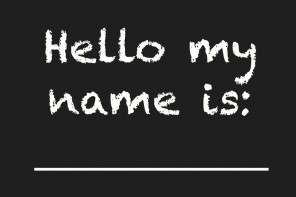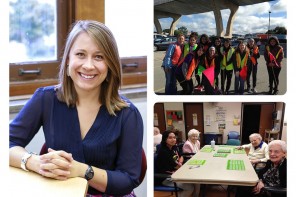By Linda Carpenter — It is all about relationships of respect.
I believe this is true about relationship with our students and our colleagues.
Getting to know your students is more than just knowing their name and to what seat they are assigned. Getting to know your colleagues to more that greeting them on the way into the building and an occasional card. Relationship is more. It is about being present to hear their stories, ask meaningful questions and incorporate this knowledge into the culture of your work.
In our area most students went back to school on Tuesday, September 3. During the first few weeks of school, most teachers (including student teachers) have been in faculty meetings, professional development workshops, department or grade level meetings and starting new classes. It is one of my favorite times of the school year. I love reconnecting with friends and colleagues and hearing about their summer discoveries. I feel a responsibility and enjoy the opportunity to connect with and mentor new educators. Learning or refreshing my practice during professional development sessions is one of the things I love school.
During the last few days I have had several emails from former students who are now teachers in their own classrooms and from student teachers who are both excited for the opportunities, but a little scared of the unknown.
One new teacher told me, “I’m busy going through my start of school checklists and trying to get everything organized.”
Another, “I AM VERY EXCITED!!!!! I will be teaching 5th grade!!!! Can you believe it???”
And a student teacher in her first staff development sent this, “I’m sitting in my first day of staff development and guess who the speaker is today… ? He is amazing and sooo inspiring!!!”
In my own classes during the last few weeks I have stressed the importance of planning lessons and activities for the first days of school that allow teachers and students to get to know each other and build those important student-teacher relationships. Many beginning teachers are focused on curriculum. They are so determined to close the achievement gaps of their students that they short-change the social and emotional learning needs of their students.
One student asked, “Will it really be okay with my principal that I don’t start math and reading on the first or second day?”
My answer, “It’s not, do you have time to do this, but rather, can you afford not to take the time to build relationships and community in your classroom?” I have checked with several principals and they assure me that they support the time needed to build relationships and community.
Zemelman, Daniels, and Hyde (2012) share the following in their discussion of principles of Best Practice:
Sociable: Learning happens most efficiently in an atmosphere of friendliness and mutual support, and teachers take steps to create safe, comfortable, and energizing classroom communities.
Democratic: The classroom is a model community; students learn what they live as members of that community. In school, we are not just training “consumers”; we are nurturing citizens—our future neighbors, coworkers, and fellow voters. (Zemelman, Daniels, and Hyde, 2012, p. 9)
It is essential to build relationships and classroom communities. I know it is important for me, for my students, and for my professional practice that I connect with my students in meaningful ways. My students are better served when I make getting to know them a priority.
It is all about relationships!
_____________________________
Linda Carpenter is faculty at Cardinal Stritch University. Linda has a B.A. in history and a master’s degree in educational technology. She is a Technology Integration Specialist. Linda works extensively with pre-service teachers, is a certified mentor for new teachers, and is a Professional Development Specialist. Her research focus is classroom management, assessment, and instructional technology.


 i evaluate to yes even if there's no image
i evaluate to yes even if there's no image  i evaluate to yes even if there's no image
i evaluate to yes even if there's no image  i evaluate to yes even if there's no image
i evaluate to yes even if there's no image 